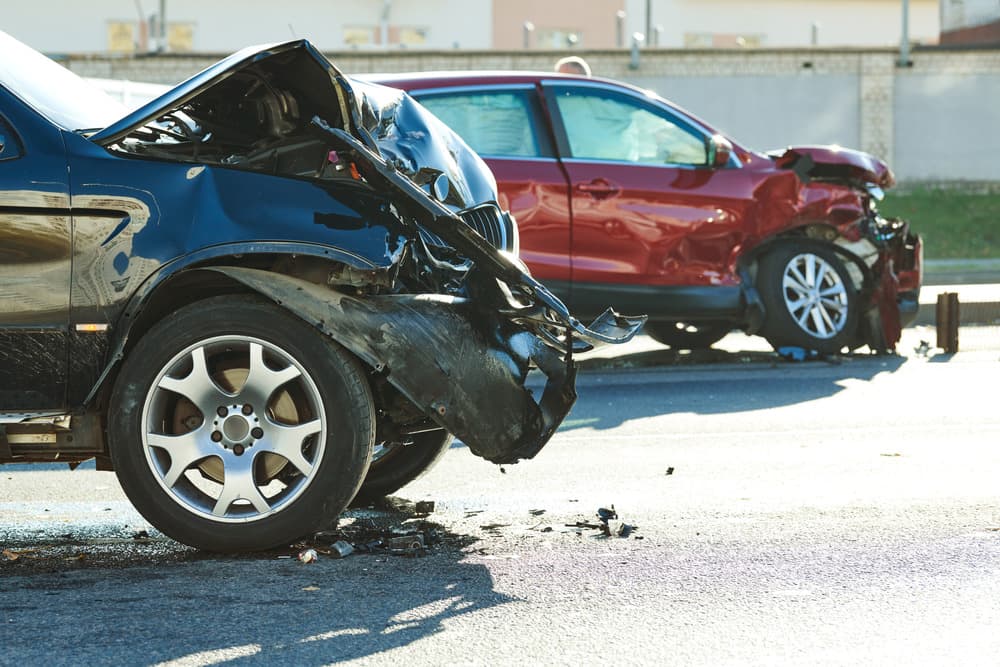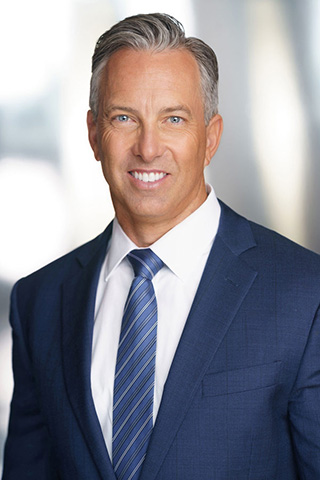If you or a loved one were injured in a car accident caused by a negligent driver, your life probably isn’t the same as it was before the crash. Painful injuries, missed work, lost wages, and a stack of medical bills have probably left you with a lot of anxiety and confusion about who you should turn to and what you should do next.
Car accident claims can quickly turn complicated, especially when the claim involves multiple people. Take, for example, a scenario in which someone other than the car’s owner drove the vehicle.
Who is liable for the accident – the car owner or the driver? If you suffered injuries in a car accident involving a driver who did not own the crashed vehicle, talk to an auto accident attorney about who is liable for the accident.
Auto Insurance Policies and Liability

Most of the time, the vehicle’s insurance policy follows the vehicle, not the owner. The insurance policy will usually pay for any damages related to an accident caused in the specific vehicle, no matter who drives the vehicle, whether a member of the owner’s direct household or not.
However, the insurance agency may ask several questions to determine whether it will pay for any damages the accident caused. Coverage may vary depending on the vehicle owner’s specific policy.
Did a household driver not named on the insurance policy cause an accident?
Vehicle owners should name all members of their households on their auto insurance policies, including any minor drivers.
Once a child secures a driver’s license—or, depending on the insurance policy, a learner’s permit—the family may have to register the juvenile driver with the insurance company to insure them in an accident. If the family fails to register a driver with the insurance company, the company may not cover the cost of a claim involving that driver.
Was the driver specifically excluded from the owner’s policy?
If the vehicle owner’s insurance policy excludes someone by name from coverage and the excluded driver causes an accident, the owner’s insurance likely will not honor a claim for damages, leaving the vehicle owner personally liable.
Did the driver take the vehicle without permission?
If an owner permits another person to use their vehicle, the insurance company will cover even a non-family driver. However, sometimes a driver may take a vehicle without the owner’s permission. Or maybe the vehicle was stolen. In these instances of unauthorized use, the vehicle owner’s insurance will not pay for accident damages. The unauthorized driver’s insurance or the victim’s uninsured motorist coverage would pay.
Does the owner have adequate coverage?
If your injuries and other damages exceed the vehicle owner’s policy limits, and you don’t have uninsured driver coverage, you could pursue damages from the driver personally.
When Does the Driver Bear Liability for an Accident?
In most cases, the driver bears direct liability for an auto accident. Ultimately, a driver decides what happens behind the wheel, including whether they can safely navigate in bad weather conditions.
Drivers bear liability for their actions and face repercussions associated with the accident, including legal responsibility. This responsibility does not mean that the driver will pay for an accident directly. Rather, the driver will bear the legal repercussions associated with the accident. The car’s insurance policy will cover the accident if the driver is liable.
Distracted Driving Accidents
A distracted driver may take their eyes, hands, or attention off the road to focus on another task. Distracted drivers struggle to respond quickly or keep up with events on the road. Unfortunately, distractions increase as drivers spend more time on the road. Drivers who spend multiple hours on the road have a harder time focusing on their vehicles.
Driving While Intoxicated
Drunk drivers find it more difficult to control their vehicles. They often cannot see what happens around them or keep a vehicle under control.
Drunk drivers frequently struggle with effective decision-making. Furthermore, driving while intoxicated slows reflexes and response times, making it more difficult for drivers to respond to potential hazards around them.
Speeding/Ignoring the Rules of the Road
Traffic rules exist to keep everyone safe. Some rules indicate who has the right of way through an intersection, and others help determine safe travel speeds. The more cars on the road, the more critical it is that drivers follow the rules.
A driver who decides to ignore the rules puts everyone in danger, makes it difficult for that driver to navigate safely, and substantially increases the risk of an accident.
Aggressive Driving
Aggressive driving puts everyone in danger. An aggressive driver stops paying attention to safety and starts behaving in a dangerous, aggressive manner: driving too fast, swerving in and out of traffic, tailgating, or even deliberately acting against other drivers on the road, including trying to force them off the road.
Aggressive driving risks accident and injury, and a driver who engages in aggressive behaviors is liable for a resulting accident.
Driver Errors
Even drivers with good intentions can make errors and cause accidents. A driver may, for example, engage in an unsafe lane change or fail to turn properly. These errors can cause an instantaneous accident before the driver realizes what happened. Even if the driver does not engage in deliberate negligence, the driver is liable for any accidents caused by their errors.
When Does the Owner of the Vehicle Bear Liability?
Sometimes, the vehicle owner may bear direct liability for the conditions that cause an accident. In some cases, the insurance company will cover those damages. However, you may recover compensation from the vehicle owner directly when they are liable for the accident.
Corporate Owner Liability
Often, companies provide vehicles for their drivers, particularly when they must drive for their job duties. If these companies carelessly manage their employees, they may share liability if their employees cause an accident.
Dangerous Policies
Some companies have dangerous policies that encourage drivers to break the rules or engage in dangerous behaviors while driving. For example, semi-truck drivers must adhere to federal regulations limiting the number of hours they spend on the road each day and periods of rest. They must also adhere to clear regulations to protect themselves and other drivers.
However, some companies encourage their drivers to break these safety rules, like exceeding the federally mandated Hours of Service limits.
Smaller companies, including those employing delivery drivers, must also exercise caution in the rules they have for their drivers. For example, if a company has a dangerous policy that encourages drivers to speed to complete faster deliveries, the company may be liable when a speeding employee causes an accident.
Poor Vehicle Maintenance
Companies that own vehicles must ensure that the fleet receives regular maintenance. When a company fails in its duty of care to keep its vehicles in good working order, it may be liable for an accident caused by a lack of proper maintenance.
Suppose, for example, that the tires on a delivery vehicle are worn down. The driver notifies the company or maintenance specialist, but no one replaces the tires. As a result, a tire blowout occurs on the driver’s route. The company might be liable for any injuries and property damage sustained in that accident since the company did not keep the vehicle in good repair.
Failure to Check Driver Records and Monitor Driver Behavior
Companies should check their drivers’ records before hiring a driver or sending an employee out on the road in a company vehicle. If the driver has a history of causing dangerous accidents, the company should not hire that driver.
Companies should also carefully monitor employees once they start driving for the company. If the driver causes several accidents due to apparent negligence and the company does not respond, the company may be liable for an accident caused by that driver.
Personal Owner Liability
While corporate owners bear a duty of care to their employees and others on the road, private owners must also exercise care when allowing someone else to drive their vehicles. Private owners may, in some cases, be liable for others’ negligent actions if they cause an accident while driving the owner’s vehicle.
Poor Maintenance
Like corporate vehicles, private vehicles must receive regular maintenance to keep them in working order. Private owners usually have a solid idea of what maintenance their vehicles need and when to have their vehicles repaired.
If a private owner fails to maintain their vehicle or notices a problem with the vehicle and allows someone else to drive it before repairing it, the owner may be liable for the accident. You can also hold the owner liable for failing to warn a driver about a potential problem with the vehicle.
Negligent Permission
Sometimes, a vehicle owner might give permission to someone who should not drive their vehicle. For example, if an owner gives a visibly intoxicated person permission to drive their vehicle, the owner may be liable for an accident caused by the drunk driver. Likewise, if a vehicle owner allows a known dangerous driver to operate their vehicle, the owner may need to pay for that driver’s dangerous actions behind the wheel.
How Do I Know Who Bears Liability for an Accident?

If you are in an accident with a driver who does not own the involved vehicle, obtaining compensation for your injuries and losses starts with determining who is liable for the accident – the car owner or driver.
Hiring an experienced car accident lawyer at this stage is essential to protecting any claim you file for damages. Depending on the circumstances of your car accident, an insurance company for an at-fault party may contact you to settle. Their objective is to pay you as little as possible and close the case.
They may try to entice you with a deal before you know the full impact of your injuries – a deal that fails to account for all your damages and losses.
The insurance adjuster may try to shift fault onto you or another party, question the seriousness and origin of your injuries, or get you to make a statement that might hurt your claim. A good car accident lawyer will not only protect you from these potential pitfalls; they will fight aggressively for your full and fair compensation.
A recent insurance study of payouts in thousands of car accident cases showed that individuals who hired a lawyer to negotiate their insurance claim received, on average, 40 percent more compensation than those who settled on their own.
If you do not hear from an insurance company after your accident, then you file a claim with the liable driver’s insurance company. The insurance company will give you information about your next steps, including whether another party bears liability for the accident. The importance of hiring a lawyer to represent you is still just as important.
Win with Wilshire
If you suffered injuries in a car accident or have questions about liability, consult a top-performing car accident lawyer with Wislhire Law. Attempting to settle a car accident case in which the driver did not own the crashed vehicle can be very complex and difficult. Wilshire will investigate your case thoroughly, gather evidence, evaluate the vehicle owner’s insurance policy, and help you determine your best legal options.
You do not deserve the emotional and physical pain, the financial hardship, or the anxiety that the car accident has brought. But you deserve maximum compensation for everything you’re going through. We are here to take that fight on for you so you can focus on what matters most: Your recovery.
Schedule a free, no-obligation consultation with one of Wilshire Law’s results-driven personal injury attorneys today. Call us at (213) 335-2402 today. The sooner you call, the sooner you can obtain the relief you need.










